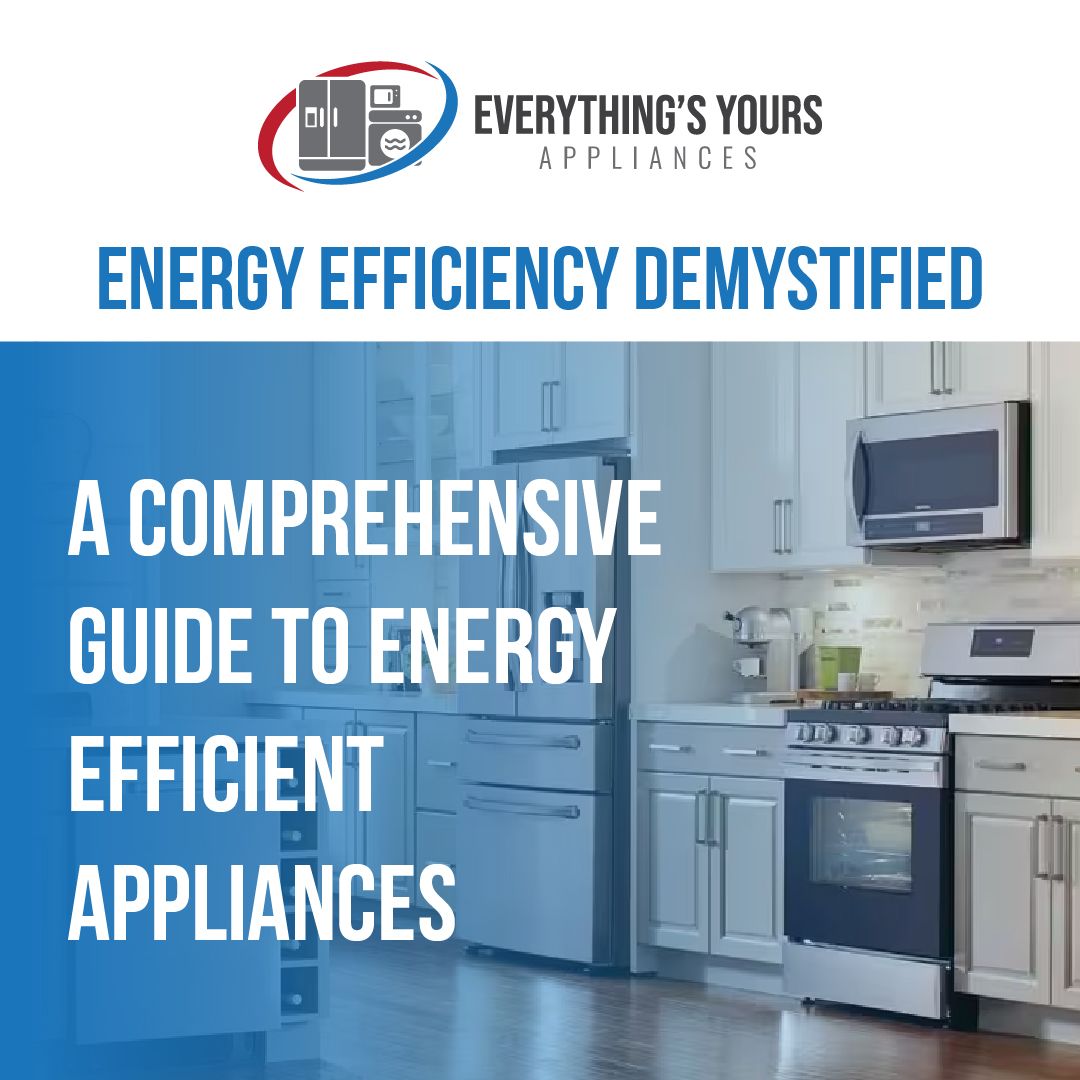
Energy Efficiency Demystified: A Comprehensive Guide to Energy Efficient Appliances
In today’s world, energy efficiency isn’t just a buzzword—it’s a necessity. With concerns about climate change and rising energy costs, more and more homeowners are seeking ways to reduce their energy consumption and environmental impact. One of the most effective ways to achieve this is by investing in energy-efficient appliances. In this comprehensive guide, we’ll demystify the concept of energy efficiency and explore how energy-efficient appliances can benefit both your wallet and the planet.
Understanding Energy Efficiency: What Does it Mean?
Energy efficiency refers to the ability of a product or system to perform its intended function while minimizing energy consumption. In simpler terms, it’s about getting the most out of your appliances while using less energy. Energy-efficient appliances are designed to achieve this goal through various technological advancements, such as improved insulation, better temperature control, and optimized operating cycles.
The Benefits of Energy-Efficient Appliances:
Lower Utility Bills: One of the most significant benefits of energy-efficient appliances is reduced energy consumption, which translates to lower utility bills over time. By choosing appliances with high energy efficiency ratings, homeowners can enjoy significant savings on their monthly energy costs.
Environmental Sustainability: Energy-efficient appliances not only save you money but also reduce your carbon footprint. By using less energy, these appliances help decrease greenhouse gas emissions and mitigate the environmental impact of household energy consumption. It’s a small change that can make a big difference in the fight against climate change.
Enhanced Performance and Durability: Contrary to popular belief, energy-efficient appliances are not just about saving energy—they also deliver superior performance and durability. Many energy-efficient models are equipped with advanced features that improve functionality and extend the lifespan of the appliance, ultimately providing better value for your investment.
How to Identify Energy-Efficient Appliances:
When shopping for appliances, look for the ENERGY STAR® label, which indicates that the product meets or exceeds strict energy efficiency guidelines set by the U.S. Environmental Protection Agency (EPA). ENERGY STAR® certified appliances are independently tested and verified to deliver superior energy performance without sacrificing features or functionality.
Additionally, pay attention to the appliance’s energy efficiency rating, typically expressed as an Energy Guide label or Energy Efficiency Ratio (EER). These labels provide valuable information about the appliance’s energy consumption and estimated operating costs, allowing you to make informed decisions based on your budget and environmental priorities.
Examples of Energy-Efficient Appliances:
Refrigerators: ENERGY STAR® certified refrigerators use advanced insulation and compressor technology to minimize energy consumption while maintaining optimal food storage conditions.
Washing Machines: High-efficiency washing machines use less water and energy per cycle, resulting in cleaner clothes and lower utility bills.
Dishwashers: Energy-efficient dishwashers feature innovative wash cycles and sensor technology to minimize water and energy usage without compromising cleaning performance.
Conclusion:
Energy efficiency is not just a trend—it’s a fundamental principle that can benefit both homeowners and the planet. By investing in energy-efficient appliances, you can save money, reduce your environmental impact, and enjoy superior performance and durability. Whether you’re upgrading your refrigerator, washing machine, or dishwasher, choosing ENERGY STAR® certified appliances is a smart and sustainable choice for a brighter, greener future.